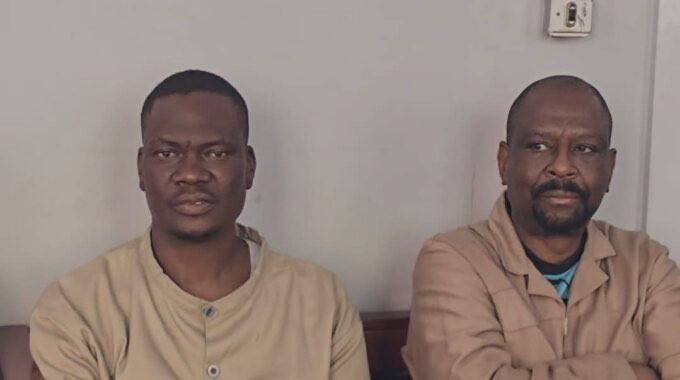
Across Zimbabwe and around the world, people are carrying invisible wounds. Many do show up with a brave face and a warm smile, but carrying a broken and wounded spirit. Others hide their hurt behind productivity, busyness, or even ministry.
I was a chronic workaholic myself at some point, leaving the office after everyone had left, appearing to be a very hardworking employee. But subconsciously, I was hiding from facing my deep emotional wounds. Beneath the daily hustles lies something undeniable: our world is filled with people trying to build, grow, lead, love, and progress while still bleeding inside. That can be mission impossible!
This is an invitation — not to dig up your pain, ignore it or glorify it, but to heal it. Because the truth is, healing is not a luxury. It is a leadership strategy. It is a productivity tool. It is a breakthrough path.
Not every wound bleeds. Some live in the nervous system, in our choices, our tone of voice, our relationships, or our silent withdrawals. Most of them have their roots in childhood pain, broken trust, failure, betrayal, grief or losses never grieved properly.
These emotional injuries often show up as chronic fatigue or burnout, procrastination, brain fog, and lack of motivation, fear of success or visibility, overworking to prove self–worth, toxic comparison and self–sabotage, disconnection in relationships, and physical pains and ailments.
Rarely do we pause to interrogate and trace these symptoms. Instead, we keep pushing harder, hoping if we achieve more, serve harder, or stay busy enough the pain disappears. Unfortunately, emotional burden does not get offloaded that way. It hides and leaks out in the most unexpected ways. Have you ever wondered why a person who seemingly looked healthy, happy and successful suddenly committed suicide? Unhealed emotional wounds can be silent killers.
Healing is not just a nice to have. Healing is for anyone who wants to move forward with clarity, wholeness, and sustainable energy. When we are emotionally wounded and we do not address the matter adequately, our nervous system gets stuck in the sympathetic nervous system, also known as the survival mode or the fight/flight/freeze mode.
In this mode, your pre-frontal cortex, the part of your brain responsible for analytical and rational thinking and decision-making, gets clogged and battles to function properly. In this state, productivity and creativity become luxuries that your brain cannot afford. When we begin to heal we start to notice profound shifts — our minds become clearer, our sleep becomes deeper, our confidence begins to return, we begin to see progress and results and we begin to connect more deeply with others.
- Mavhunga puts DeMbare into Chibuku quarterfinals
- Bulls to charge into Zimbabwe gold stocks
- Ndiraya concerned as goals dry up
- Letters: How solar power is transforming African farms
Keep Reading
It is like taking weights off the mind and shackles off the soul. In my work as a Mind Coach, I have seen clients who were stuck for years begin to experience personal breakthroughs, not by learning new skills, but by learning to listen to what their pain was trying to teach them.
Emotions are alert messages from your nervous system that “hey, you need to stop and address an issue that has plunged us into survival mode”. Emotional intelligence, which is the ability to decode and regulate your emotions, is one of the most critical competencies for the 21st century. Once we heal, goals that once overwhelmed us begin to feel possible. They motivate and energise us.
Cost of ignoring what hurts
In Zimbabwe, where many are operating in survival mode, we often treat mental and emotional well-being as optional. I know of organisations who will part with tens of thousands of dollars for technical skills training programmes, yet unwilling to part with just a few hundred dollars for mental skills training programmes.
When emotional pain is unaddressed, it mutates into bitterness, aggression, anxiety, chronic stress, physical illness, incompetence and failure to produce results. According to the World Health Organisation, the global economy loses 12 billion days valued at US$1 trillion yearly due to absenteeism and presenteeism caused by unaddressed mental and emotional health issues. A simple long term personal problem might cost the organisation so much.
We see this in leaders who make unwise and costly decisions because they are operating from childhood traumas, marriages and families torn apart because no one knows how to name or manage emotions, workplaces full of resentment, exhaustion, or silent disengagement, and a generation of youth who numb their pain with substances or social media.
The cost is not only personal. It is national and is global. We cannot talk about productivity, excellence, or development in our families and organisations without first talking about the inner worlds of individuals tasked to make that happen. We must address internal frameworks that determine how people think, feel, relate and behave. A person can only lead or build to the level of their personal healing.
Healing is possible
I have some good news today, ready for it? Healing is not as far away as it may seem. You do not have to retreat to mountains or attend expensive retreats to begin the journey.
Sometimes healing starts with one brave pause — a moment of honesty, a breath, a reset. Yes, professional help is vital and is needed, but that is just to support the work you need to start yourself. Here are three simple but powerful tools that I often share with my clients:
ABC coping statement
The ABC Coping Sentence is a cognitive behavioural technique developed by Claire Hayes. It is a simple tool to help manage emotions and reactions by identifying feelings, understanding their cause, and choosing a helpful response.
“A” stands for awareness – you become aware of an emotional reaction. “B” stands for because — you identify events or thoughts causing the emotional response. “C” stands for choices — you choose to react in a way that takes you off the survival mode onto homeostasis. Let’s look at an example of an ABC Coping Sentence: I am feeling frustrated, because I am not making any meaningful clothing sales, but I choose to be grateful that I have a consistent salary from my formal job.
Journaling
Journaling is the practice of writing down thoughts and feelings to process and release pent-up emotions, thereby fostering mental clarity and well-being. It provides a safe, private space to explore emotions, identify patterns, and develop coping strategies. Some researchers suggest that by writing your thoughts and feelings on paper, you will be offloading them onto the pages thereby reducing their intensity. This practice can be helpful for managing stress and anxiety.
Creative expression
Creative expression involves engaging in creative activities such as art, writing, knitting, baking, dancing or playing a musical instrument. It is regarded as a powerful tool for emotional release and healing. It allows individuals to explore, process, and express emotions that may be difficult to verbalise, often leading to a sense of release and improved well-being.
These tools and more, can play a big role in helping individuals deal effectively with emotional wounds and creating a conducive internal environment for healing and productivity.
Healing is not about becoming soft. It is about becoming strong from the inside out. When we tend to the inner wounds, we become more focused, more creative, and more available for healthy connections and leadership.
Mhaka is a certified life coach, trainer and mind fitness strategist. She is the executive director of BeMindFit and a leading voice in mental wellness, emotional healing and self-leadership in Zimbabwe. — www.bemindfit.org/ [email protected]. These weekly articles are coordinated by Lovemore Kadenge, an independent consultant, managing consultant of Zawale Consultants (Pvt) Limited, past president of the Zimbabwe Economics Society and past president of the Chartered Governance & Accountancy Institute in Zimbabwe. — [email protected] or mobile: +263 772 382 852.











